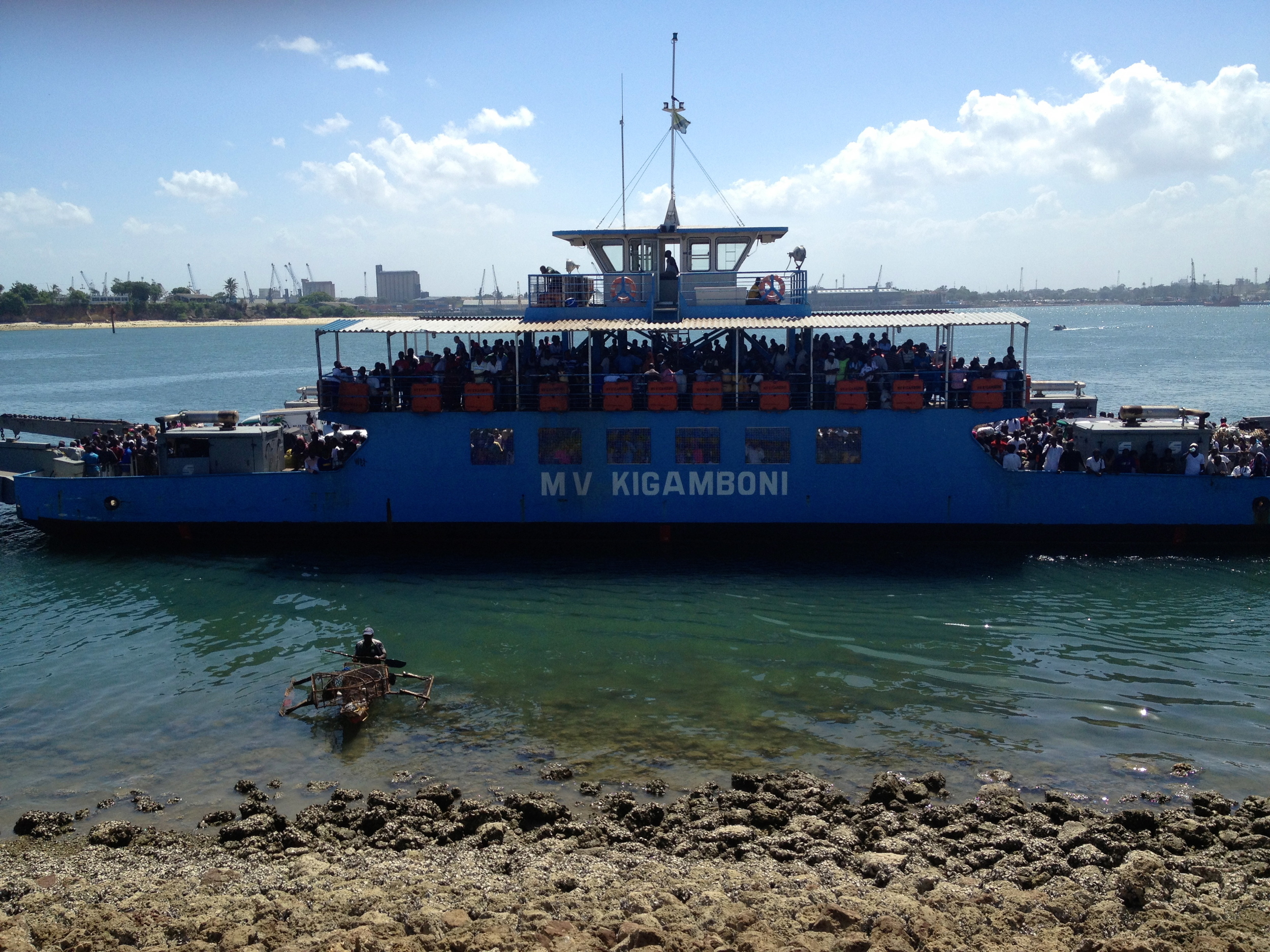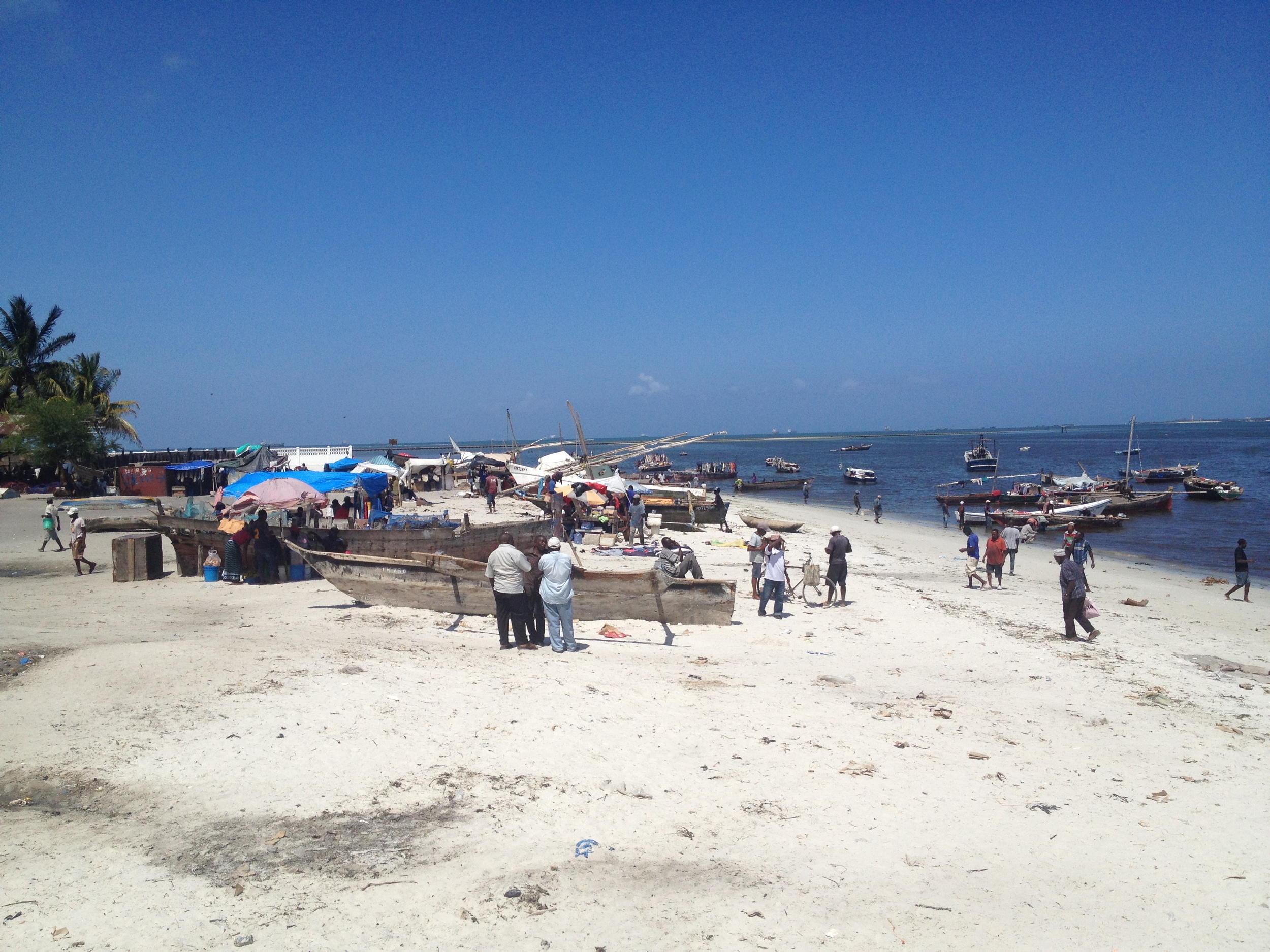It is extremely muggy and hot when
we step off the plane into the not air-conditioned Dar es Salaam airport and
then into the oppressively steamy Tanzanian night. We have what we think are good directions to
the guesthouse we’ve booked on Botswana Road, but once our taxi gets to the
general area where we know the guesthouse to be – because we’ve counted the
number of speed bumps beyond the last landmark as instructed by the folks at
Hostel World booking - the directions are useless as the are absolutely no
street signs and - as we later find out – the sign with the name of the
guesthouse on it has fallen, I’m sure not more than a month or two ago, and not
been repaired. As we drive through the
streets of Dar there are small tables with candles burning on them, lighting up
a seemingly endless line of miscellaneous vendors on both sides of the street. On virtually every corner small trash fires
burn. It’s all a bit like a scene from
hell. And what is there to do other than
roam the hot and muggy streets, or hang out with your friendly neighborhood
vendor in Dar es Salaam, which is what at least half the population of this one
time fishing village, now a four million person major metropolis in third world
Tanzania, seems to be doing. And those not walking are driving or
bicycling, creating the impression in both Sheryl’s and my minds that we’ve
actually landed in India, not Tanzania, although India is much noisier … and cooler.
So we unknowingly drive a few times
passed the guesthouse where we’ve booked our rooms until the owner’s soft
spoken genteel and perfectly proficient English speaking son – London and Zurich
educated - appears in the street to guide us.
We are so far out of town that we question whether it makes more sense
to seek quarters other than a place padlocked tight, in a padlock tight
neighborhood, with no air conditioning, where we would be its only guests. But it is also clean, and Wilson really does
speak good English, and he is very gracious and informative, and I’ve paid a
small deposit to reserve two rooms in an empty guesthouse online, and we doubt
our driver could get us anywhere other than a Holiday Inn, and it’s late. So we stay.
Dining presents another problem, as
the only place with an open kitchen appears to be the equally deserted local
hotel across the street, where we had earlier stopped to get incorrect driving
instructions. So after dropping off our
bags, and fondling the padlocks, we walk down our rutted dusty street (there
are only rutted dusty streets where we are staying … and in most of Dar),
passed a pond filled with the noisiest frogs in all of Africa, for a meal of
fried chicken, fried potatoes, and Kilimanjaro beer. As the T-shirts say, “If you can’t climb it,
drink it.”
Once back at the guesthouse we
discover that I’ve lost the keys to the padlocks somewhere in the 1,000 meter
stretch between the guesthouse gate and the restaurant. So we whip out our trusty Buck Rogers twin
iPhones with flashlight apps and confidently start walking slowly down the
street scanning the dark and dusty road for keys, headed back toward the
restaurant, which is now unfortunately shut tight. We are joined on our strange mission by a lovely
twelve year old boy who lives here on Botswana Road, who also has some kind of
light, and we walk three abreast scanning terrain filled with shiny bottle
caps, crushed cans, and a variety of objects lit by our lights - none of which
– despite three trips up and down Botswana – turn out to be the keys.
So we call the gracious soft spoken
perfectly proficient English speaking grown son of the owner of the guesthouse
with no guests, no sign, and no air conditioning, to confess my lapses in basic
competency, only to discover that he has no spare key for the upstairs area
where our clothes, meds, passports, and my laptop are already in bed asleep. It’s like sign repair, methinks, just not
something he has gotten to. On the other
hand Wilson does have a sledgehammer – he has had this problem before
apparently - and, like a brazen cat burglar, he noisily smashes open the lock,
reuniting us with our “stuff,” and not drawn the curious attention of even one
neighbor.
We begin the next day buying Wilson
new padlocks and keys. And by the next
evening, unable to find a more acceptable place to eat after a day of wandering
the muggy city, we return to Botswana Road to eat dinner at the restaurant in
the empty hotel across the street from our padlocked guesthouse where the soft
spoken not so proficient English speaking waiter gives us the menu … and the keys
he found earlier that day when a car that had parked in the hotel driveway
after we had arrived the night before, and presumably where I’d dropped the
keys, had been moved.
As for Dar itself, there just really
isn’t that much to recommend it from my perspective, and, in fact, that may be
too positive a view. We take a bus into
the center of town on the morning of our one day here packed so fully with
passengers that people are standing in the aisle nose to armpit and groin to
butt throughout the long slow thirty minute creeping traffic ride. Sweating.
Profusely. And I do mean packed,
squeezed in, physically pushed together, stuffed, and crunched.
Downtown Dar is hot, very hot, and
there is nothing to “do.” There is no air
conditioning. The fish market is
filthy. The national museum is like a set
of eighth grade science class dioramas of Tanzanian history and human evolution
in Tanzania, starting say 7,000 years ago, with no mention of our sapient
ancestors. And the poverty manifest in
the city is absolutely overwhelming, more so than modern India, although the
streets of Dar are cleaner - there’s some form of garbage pick up, which cannot
be said about India - and the need for humans to use the streets as a bathroom
is not on open display, release, and revelation as in India.
The traffic and heat – did I
mention them - are almost unbelievable, and Dar residents say it’s not really
hot yet. There are only two (okay, at
most three) paved roads, even here in the capital. The other roads have speed bumps every few
meters and potholes that give potholes a bad name. The dry English comedies and pathetic Spanish
soap operas on the TV are subtitled in Arabic.
People sweat standing still. Bottom
line, I regret to say as I rush headlong out of town, is that I recommend you
not place Dar high on your list of must visit towns, and certainly no higher
than Pattaya, Thailand, which had previously ranked somewhere near the bottom,
just below Bangkok, on my lonely planet “better to stay home” page

